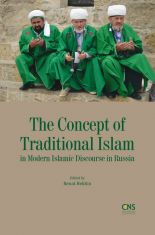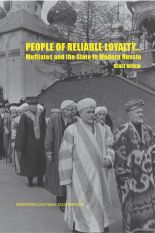Monographs
The concept of ‘traditional Islam’ in modern Islamic discourse in Russia / ed. by R.I. Bekkin. — Sarajevo: Center for Advanced Studies, 2020. — 296 p.

All the articles in the book include some consideration of the traditional Islam concept as an artificial construct promoted by the state to designate their preferred model of state-confessional relations, in which religious organisations and individual believers demonstrate their loyalty to the political regime. Organisations and believers who criticize the state’s domestic and foreign policy can then be attributed by the authorities and the muftiates to the representatives of ‘non-traditional Islam’.
People of reliable loyalty…: Muftiates and the state in modern Russia. — Huddinge: Södertörns högskola, 2020. — 406 p.

This dissertation presents a full-fledged portrait of the muftiate (spiritual administration of Muslims) in modern Russia. Designed initially for the purpose of controlling religious activity, over time the institution of the muftiate was appropriated by Muslims and became a key factor in preserving national identity for different ethnic groups of Tatars. In modern Russia numerous muftiates play the controversial role of administrative bodies responsible for the enforcement of some aspects of domestic and foreign policy on behalf of the state.
Bekkin’s research focuses on muftiates in the European part of Russia, examining both their historical development and their functioning in the modern context. The analysis draws on academic literature, written and oral texts produced by the ministers of the Islamic religion, and archival sources, as well as numerous interviews with current and former muftis and other Islamic bureaucrats. Following Douglass North’s theory of institutions, the author distinguishes between the muftiate as an institution and the muftiate as a religious organization. In the first case the muftiate encompasses a set of rules (restrictions) that are both formal (reflected in the laws, charters of spiritual administrations of Muslims) and informal (not reflected in the legislation). Individual Islamic religious organizations (muftiates in a narrow sense) function according to these rules. By analyzing both the formal and informal precepts which regulate the status and the activity of spiritual administrations of Muslims in the Russian Empire and the Soviet Union, and continue to do so in modern Russia, the author makes an attempt to explain the viability of the institution of the muftiate.
